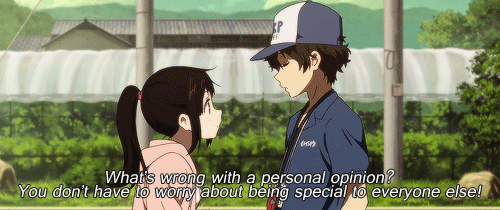Issue 3: Animating Zombies
A very entertaining thing about being alive is the ability to have conversations with ourselves.
They could be about wildly different subjects; for example, as self-motivation against troubling desires:
“I’m hungry— I want to finish exercising and eat a banana, not succumb to ordering that discounted ice-cream on Swiggy”,
or to figure out what is the best way forward when we’re genuinely conflicted:
“Should I offer a 10 rupee note to the begging child when my knowledge of modern life already puts a high probability on that money going to a scheming adult/being used to buy addictive substances?”
This ability to go ‘inside’, plan, perform and reflect on our actions and their consequences is guided by our imagination and governed by our experience, gifting us multiple attempts to succeed and guarding us from the world’s critiques until we’re prepared.
Personally, I feel like talking to myself is at the root of my identity and informs my understanding of ideology. I may have the potential to map out an infinite number of conjectures and hypotheses in my brain, but voicing it within, by its very reliance on spontaneous expression, narrows my consciousness into a form of kinetic tangibility. Between thought and action is speech, which is why for many people, spending time articulating something is an uselessly elaborate affair, neither as pure as the essence, nor as solid as the act; yet, even subconsciously choosing the words to pinpoint and enlarge an idea (whether to yourself or others) can be very thrilling.
The music I just hummed. A line I can’t remember anymore. The feeling I get when a friend calls, recollecting an old memory about the two of us growing up. As I type, these sentences are written images speaking back to me. I’m surrounded by thousands of such momentary mirrors, and strangely, a little bit invisible in each of them. Which is why my life mostly consists of trying to trace my personality from considering these fragmented glimpses as a whole, in active pursuit of a story that sums me up better each day.
Consider ‘ideology’. A google search throws up:
‘a system of ideas and ideals, especially one which forms the basis of economic or political theory and policy’.
Ideologies are the basis upon which masses mobilise. They arise from the civilisational tendency of seeking security in numbers as we undergo integration into society, built around painstakingly rationalised units of core belief that serve as comfortable definitions— in whose shade we seek shelter. From the point of view of objectives, any ideology’s main aim is the seduction of this stream of internal conversations that human beings develop over their lives, channeling it into chasing hallowed, predetermined ideals.
Of course, it’s important to believe in things. The way I’ve framed ideologies will classify me as a ‘sceptic’, perhaps even a ‘cynic’, ultimately ending in self-reflexivity—even believing in nothing means something.
To update Descartes a bit, tongue firmly in cheek: ‘I ̶t̶h̶i̶n̶k̶ talk to myself, therefore I am.’
The reason I brought up having internal conversations is because recently I’ve been having them more than usual. I’ll quickly discuss two.
The first occurs when I watch a film, or consume any visual/melodic content. A part of me criticises these gaps of wasted time where all logic leaves through the door, hours fly, their ends stick to further hours, and I’m so deeply invested in the output of another imagination that anything breaking this spell of dream-like reality irritates me. Another part laughs at how my fingers go numb struggling to grip the totem-pole of physical existence, staring at an epidemic of joblessness, schools without toilets flushing down kids, comedians in jails keeping hatemongers on streets. I tell myself, “Work hard, maybe you can make a difference to what appalls you. Maybe you can shape a corner of the world for the better, leave an imprint that remains.” On the other hand, a different I mutters back, “Talk to someone you could never be, watch something you’d never create, everything you do doesn’t have to ‘matter’! Stop feeling so bloody guilty.”
A second conversation contemplates the balance between majority and minority. Here’s 4 impressions:
The four pillars: government, parliament, judiciary and media have certain rules to follow and interpret.
The source of this regulatory architecture, the Constitution, begins with the words ‘We, the People..’, to justify all power as originating from them.
Going by majority, we are a racist, casteist, sexist lot of people.
Until there is a way to actually separate privilege from standard of living, and blindness from faith, it seems obvious that the status quo will remain predatory.
Our Constitution was an attempt to impose from top-down, an equal, liberal and fair society on an unequal, illiberal and unfair population by a bunch of well-meaning activists and lawyers who spent years debating how to achieve their targets post independence. What’s ironically often forgotten is that the force of the document that defines civil life in India comes from people ideologically far more similar to those expressing dissent today than those not. In other words, there’s always been a minority trying to transform the majority for the better.
The crucial difference is that currently, we have thrown open the fruits of majoritarian religiosity to our still-uneducated-after-70-years fraternity, whose members possess an unchecked pride stemming from place of birth and gene pool, and have embraced hating a mythical opposition to escape political, social and economic uncertainty.
Perhaps recounting these conversations paints me as a morose and difficult figure. Oh well, guess I’ll store the happier, snappier material for better company than myself!




